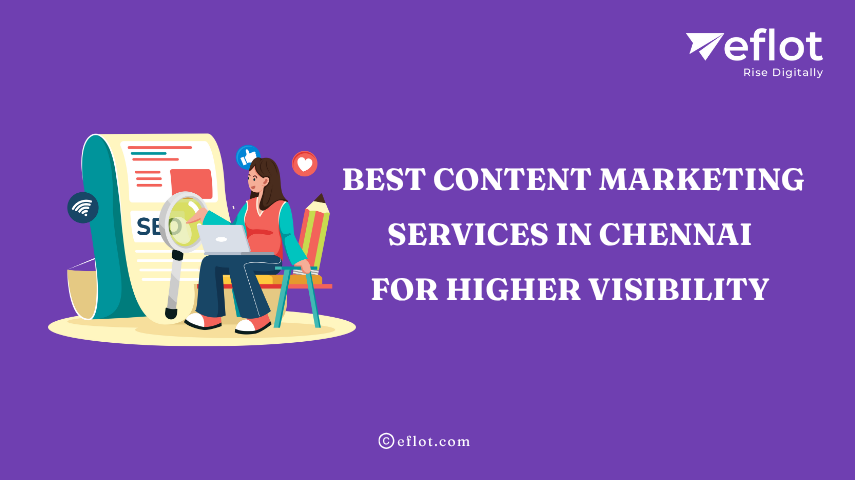
Introduction to AI Agent Development
The Rise of AI Agents in the Modern Era
Artificial Intelligence (AI) agents are rapidly reshaping the digital landscape, driving innovation across industries and transforming how businesses operate. Over the last decade, the integration of AI into everyday systems has moved from science fiction to reality. Today, AI agents are not only powering smart assistants like Siri, Alexa, and Google Assistant but are also embedded in enterprise systems, optimizing workflows, analyzing massive datasets, and delivering predictive insights.
The rise of AI agents is largely attributed to the advancement of machine learning, big data analytics, and natural language processing. These technologies have allowed AI agents to evolve from simple rule-based bots to intelligent, context-aware systems capable of making decisions, learning from interactions, and continuously improving performance.
As a result, many businesses are turning to a professional AI agent development company to build intelligent solutions tailored to their unique needs. Partnering with such experts ensures access to scalable, data-driven systems that automate repetitive tasks, streamline communication, and enhance decision-making. From customer support chatbots that resolve issues in seconds to autonomous systems managing logistics, AI agents have become indispensable tools.
The growing need for speed, personalization, and accuracy in business operations has made AI agent development a key strategic priority for companies seeking a competitive edge in the digital age.
How AI Agents Are Redefining Intelligent Automation
Intelligent automation used to mean replacing human effort with basic machine-driven processes. But with the arrival of AI agents, automation has taken a leap toward intelligence and adaptability. Unlike traditional bots that follow pre-set instructions, modern AI agents can learn from data, adapt to changing scenarios, and make contextually relevant decisions without human intervention.
These agents use machine learning models to process complex data and make predictions, while natural language processing allows them to understand human communication naturally. For instance, AI-powered customer service agents can interpret tone and intent, providing empathetic and accurate responses, something that standard automation systems could never achieve.
AI agents also bridge the gap between robotic process automation (RPA) and cognitive computing. They not only execute tasks but also understand, reason, and recommend actions. This shift from “doing” automation to “thinking” automation is redefining industries like healthcare, banking, and manufacturing, enabling businesses to achieve smarter workflows, reduce costs, and increase productivity.
The Role of AI in Business Transformation
AI plays a transformative role in how organizations operate and deliver value. By embedding AI agents into their operations, businesses can transition from reactive models to proactive and predictive ones. These agents analyze historical and real-time data, forecast future trends, and make decisions that align with business goals.
In sectors such as finance, AI agents detect fraudulent activity before it happens. In retail, they predict buying patterns and optimize inventory. In manufacturing, they predict equipment failures and schedule maintenance automatically. This kind of proactive problem-solving is driving a major shift in operational efficiency.
Moreover, AI agents empower businesses to deliver hyper-personalized customer experiences. By learning from user behavior, preferences, and feedback, they create dynamic and adaptive systems that respond to individual needs. The result is improved satisfaction, retention, and profitability.
The integration of AI agents is no longer just a technological upgrade; it’s a fundamental business transformation strategy that helps companies stay relevant, agile, and future-ready.
Understanding AI Agents
What Are AI Agents?
An AI agent is a software entity that perceives its environment, processes data, and takes intelligent actions to achieve specific goals. Unlike traditional automation tools that follow fixed scripts, AI agents use algorithms and learning models to make decisions dynamically. They continuously improve their performance based on feedback and experience.
Simply put, AI agents are the brain behind intelligent automation. They can analyze data, interpret language, recognize images, and even engage in conversations. Their decision-making ability allows them to act autonomously, whether that’s managing tasks, supporting customers, or optimizing business processes.
For example, when you interact with a chatbot that understands your query, processes your intent, and provides a relevant answer, that’s an AI agent at work. Similarly, when a self-driving car navigates through traffic, it uses multiple AI agents that collaborate to interpret sensor data, predict movement, and plan routes safely.
Types of AI Agents (Reactive, Proactive, and Hybrid)
AI agents come in several types, each with distinct functions and intelligence levels:
- Reactive Agents – These are the simplest form of AI agents. They respond to stimuli without any memory or learning capability. A good example is an automated chatbot that responds to keywords but cannot recall previous interactions.
- Proactive Agents – These agents not only respond to inputs but also predict and plan future actions. For example, a virtual assistant that schedules meetings based on your calendar patterns is a proactive agent.
- Hybrid Agents – Combining both reactive and proactive capabilities, hybrid agents are the most advanced. They can adapt, learn, and act autonomously based on evolving situations.
Hybrid agents are now widely used in industries where both quick responses and long-term strategy are essential, such as healthcare diagnostics, finance automation, and personalized e-commerce systems.
Key Components That Make AI Agents Intelligent
AI agents rely on several core components to function effectively:
- Perception – The ability to interpret and understand input data from the environment, such as speech, images, or sensor data.
- Reasoning and Decision-Making – Agents use algorithms and predictive models to make data-driven choices.
- Learning – Through machine learning, agents adapt and improve based on past outcomes.
- Action Execution – They perform tasks or deliver outputs such as responses, alerts, or automated processes.
- Feedback Loop – They continuously analyze the results of their actions and refine their strategies.
These components enable AI agents to mimic human-like intelligence, allowing them to adapt and perform complex tasks across various domains.
Examples of AI Agents in Daily Life
AI agents have quietly integrated into many aspects of our daily routines:
- Virtual Assistants: Siri, Alexa, and Google Assistant manage tasks, control smart devices, and provide real-time answers.
- Recommendation Systems: Netflix and Spotify use AI agents to suggest personalized content.
- Customer Service Bots: Many businesses deploy AI agents on websites and apps to provide instant customer support.
- Smart Devices: Home automation systems use AI agents to adjust lighting, temperature, and security based on user habits.
- Autonomous Vehicles: Self-driving cars rely on AI agents for navigation, obstacle detection, and traffic management.
These real-world examples show how AI agents make everyday life more efficient, connected, and intelligent.
The Evolution of Intelligent Automation
From Traditional Automation to AI-Powered Systems
Traditional automation relied heavily on predefined rules and repetitive processes. While effective for structured tasks, it lacked flexibility and adaptability. AI-powered automation changed this narrative by introducing intelligence into the system.
AI agents bring learning and reasoning into automation. They don’t just follow instructions; they analyze patterns, predict outcomes, and optimize processes. This evolution has shifted automation from static scripts to dynamic ecosystems that can evolve with data and context.
For instance, in manufacturing, early automation handled repetitive assembly tasks. Modern AI agents, however, manage the entire production line, predicting maintenance needs, reducing waste, and optimizing efficiency. The transition marks a massive leap toward smarter, self-learning automation.
The Integration of Machine Learning and NLP
Machine Learning (ML) and Natural Language Processing (NLP) are the backbone of intelligent automation. ML enables AI agents to learn from data and improve performance over time, while NLP allows them to understand, interpret, and generate human language.
Together, these technologies help AI agents understand complex commands, predict outcomes, and interact naturally with users. In customer support, for example, AI agents can comprehend a user’s tone, intent, and context, delivering personalized and accurate responses in seconds.
The synergy between ML and NLP has enabled the creation of conversational AI, predictive analytics, and cognitive automation, all critical components of intelligent automation.
How Intelligent Automation Improves Efficiency and Decision-Making
Intelligent automation doesn’t just make processes faster; it makes them smarter. AI agents analyze data in real-time, identify inefficiencies, and make recommendations for optimization.
For example, in supply chain management, AI agents monitor logistics operations, predict disruptions, and automatically reroute shipments to avoid delays. In finance, they assess risks and detect fraud in milliseconds.
This level of automation ensures accuracy, saves time, and enhances decision-making. Businesses can now focus on strategic initiatives rather than getting bogged down by repetitive tasks.
The result is a seamless blend of human creativity and machine intelligence, a partnership that drives innovation and productivity at scale.
How Much Does It Cost to Create an AI App?
Factors Affecting AI App Development Costs
When determining the cost of creating an AI-powered app, several factors come into play, including complexity and functionality, as well as data processing needs and design. Unlike standard mobile apps, AI applications require extensive research, training datasets, algorithm development, and integration with existing systems. These elements directly influence cost, development time, and scalability.
- App Complexity – The more complex the AI features, the higher the development cost. A simple chatbot app, for instance, costs far less than a predictive analytics system or computer vision model.
- Type of AI Technology – Costs vary depending on whether you’re implementing machine learning, natural language processing, image recognition, or deep learning capabilities.
- Data Requirements – AI relies on massive amounts of clean and labeled data. Acquiring, storing, and preprocessing this data significantly impacts the budget.
- Integration Needs – If your app needs to connect with multiple systems (e.g., CRM, ERP, or IoT devices), integration costs increase.
- User Interface (UI/UX) – A seamless, interactive design enhances user experience but adds to design and development hours.
- Development Team Expertise – The cost varies based on whether you hire freelancers, an in-house team, or a professional AI development agency.
- Maintenance and Updates – Post-launch maintenance, including bug fixes, AI model updates, and continuous learning, also contributes to long-term expenses.
Essentially, the more intelligent, data-driven, and scalable you want your AI app to be, the greater the investment required; however, this also increases the potential return.
Pricing Breakdown: Starting from $5,000
AI app development typically begins at $5,000 for a basic MVP (Minimum Viable Product) and can rise to $100,000 or more for complex, enterprise-level solutions.
A basic chatbot app with predefined responses usually costs between $5,000 and $10,000, ideal for startups testing AI integration. If you need a more advanced NLP-powered assistant that understands voice commands, text, and user sentiment, expect costs from $5,000 to $25,000.
At the high end, enterprise AI automation systems that integrate machine learning models, APIs, and end-to-end business automation can exceed $100,000.
While these numbers may seem high, it’s crucial to see AI development as a long-term investment rather than a one-time expense. The returns in terms of automation, speed, accuracy, and decision-making efficiency often far outweigh the initial cost over time..
How to Get the Best ROI on Your AI Investment
To maximize your Return on Investment (ROI) in AI app development, it’s essential to plan strategically and adopt a results-driven approach.
- Start with a Clear Objective – Define what problem you’re solving with AI. Whether it’s customer engagement, process automation, or data analysis, clarity ensures efficiency.
- Begin Small, Then Scale – Start with a pilot or MVP to validate the concept before scaling. This helps manage costs and refine the model.
- Leverage Existing Frameworks – Use pre-trained AI models or APIs to reduce development time and expenses.
- Continuous Learning and Optimization – AI is not “build once and done.” Keep training and updating models for improved accuracy and performance.
- Measure ROI Regularly – Use metrics such as cost savings, productivity improvement, or user satisfaction to track ROI.
By aligning AI capabilities with business goals and performance metrics, companies can ensure sustained profitability and long-term value.
Hidden Costs to Consider in AI Development
While most businesses focus on development and design, hidden costs often emerge post-launch:
- Data Cleaning and Labeling – Preparing large, high-quality datasets can consume up to 50% of the project budget.
- Cloud Storage and Computing Power – AI models require high computational resources, especially for training deep learning networks.
- Security and Compliance – Implementing data encryption, access control, and regulatory compliance adds to expenses.
- Maintenance and Retraining – Continuous updates and retraining models ensure performance but increase operational costs.
- Talent Acquisition – Recruiting or contracting specialized AI engineers and data scientists comes with premium costs.
Being aware of these hidden costs upfront ensures better financial planning and project success.
Why Choose Us for AI Agent Development
Our Expertise in AI, ML, and Automation
We specialize in creating intelligent, scalable, and high-performing AI agents and applications. Our team includes data scientists, AI engineers, and automation experts with years of experience across multiple industries. From machine learning and natural language processing to predictive analytics and RPA, we deliver solutions tailored to your business needs.
Our expertise spans across:
- AI model design and deployment
- End-to-end automation using RPA and ML
- Predictive analytics and decision intelligence
- Real-time data integration and optimization
With us, you get a partner who understands not only the technology but also your business objectives.
Proven Track Record of Successful AI Projects
We’ve delivered numerous AI-powered solutions for clients in healthcare, finance, retail, and logistics. Our projects range from chatbots that enhance customer engagement to predictive maintenance systems that save millions in operational costs.
Our success stories include:
- A healthcare AI assistant that reduced patient response time by 60%.
- A financial analytics system that identified risk patterns 10x faster than manual analysis.
- An e-commerce recommendation engine that improved sales conversion rates by 35%.
Each project reflects our commitment to innovation, performance, and measurable impact.
Dedicated Support and Post-Deployment Maintenance
AI doesn’t end with deployment; it evolves. Our dedicated support team ensures your AI solutions continue to learn, improve, and adapt to new data and market dynamics.
We offer:
- Continuous performance monitoring
- Regular model retraining
- Security and compliance updates
- Scalable cloud optimization
This ensures that your AI system remains cutting-edge, secure, and aligned with your evolving business needs.
Client Testimonials and Industry Recognition
Our clients consistently praise our technical proficiency, reliability, and collaborative approach. Many have experienced transformative results from reducing costs to driving innovation.
We’re also recognized by industry experts for our excellence in AI innovation, data science, and intelligent automation. Our consistent record of client satisfaction and measurable outcomes makes us a trusted AI partner for global businesses.
The Future of AI Agents in Intelligent Automation
Emerging Trends in AI Development
The AI landscape is evolving rapidly, with trends such as generative AI, self-learning systems, and edge computing shaping the next era of automation. Future AI agents will be more autonomous, capable of performing complex tasks with minimal human intervention.
Expect to see:
- AI agents capable of multi-tasking across domains
- Enhanced personalization through emotional intelligence
- Integration with Internet of Things (IoT) ecosystems
These trends are pushing industries toward greater efficiency and innovation.
The Role of Ethical AI and Responsible Automation
As AI becomes more pervasive, ethical considerations become critical. Companies must ensure transparency, fairness, and accountability in AI-driven decisions.
Ethical AI practices include:
- Avoiding bias in data and algorithms
- Ensuring explainable AI models
- Protecting user privacy and data security
Responsible automation ensures AI benefits humanity without replacing human creativity and empathy.
How AI Agents Will Shape the Workforce of Tomorrow
AI agents are not here to replace humans; they’re here to empower them. By automating repetitive and data-intensive tasks, employees can focus on strategic, creative, and interpersonal work.
In the future, businesses will see AI-human collaboration as the new normal, where intelligent agents handle execution while humans provide oversight, innovation, and vision.
Challenges in AI Agent Development
Technical Complexities and Data Challenges
Building robust AI agents requires handling massive amounts of data, training complex models, and ensuring performance accuracy. Incomplete, biased, or low-quality data can lead to poor outcomes. Overcoming these hurdles requires a skilled technical team and continuous optimization.
Security and Privacy Concerns
AI systems often handle sensitive data. Implementing advanced security protocols, encryption, and compliance with regulations (like GDPR) is vital to safeguard information and maintain user trust.
Maintaining Human-AI Collaboration
AI should complement human work, not replace it. Striking the right balance between automation and human oversight ensures ethical, transparent, and efficient operations.
How to Get Started with AI Agent Development
Defining Your Business Goals
Begin by identifying the specific pain points AI can solve. Whether it’s improving customer service, automating tasks, or enabling data-driven decisions, clarity in objectives guides successful development.
Choosing the Right AI Development Partner
Select a partner with proven AI expertise, transparent communication, and a track record of delivering results. The right team should align technology with your business strategy, not the other way around.
Planning for Scalability and Future Growth
Your AI app should grow as your business evolves. Plan for scalable architecture, continuous learning, and integration with emerging technologies. Future-proofing ensures long-term sustainability and success.
Conclusion
The Path Forward with AI Agents
AI agents are transforming the way businesses operate, delivering automation, intelligence, and agility. Organizations that embrace AI today position themselves ahead of the curve in innovation and efficiency.
Why Businesses Should Act Now
The AI revolution isn’t on the horizon; it’s already here. The sooner you adopt AI-driven automation, the faster you’ll achieve operational excellence and competitive advantage. The time to invest in intelligent automation is now.
FAQs
1. What industries benefit the most from AI agents?
Industries such as healthcare, finance, retail, logistics, and manufacturing benefit significantly due to automation, predictive analytics, and personalized experiences.
2. How long does it take to build an AI agent or app?
Depending on complexity, development can take 8–24 weeks for an MVP and up to 6–12 months for full-scale enterprise AI solutions.
3. Can AI agents be integrated into existing systems?
Yes, AI agents can integrate seamlessly with your CRM, ERP, or other enterprise platforms to enhance automation and efficiency.
4. What’s the difference between AI automation and intelligent automation?
AI automation performs rule-based tasks, while intelligent automation uses AI to analyze, learn, and make decisions autonomously.
5. How do I start developing an AI agent for my business?
Start by defining goals, identifying processes that can be automated, and partnering with an experienced AI development company to guide you through the process.







